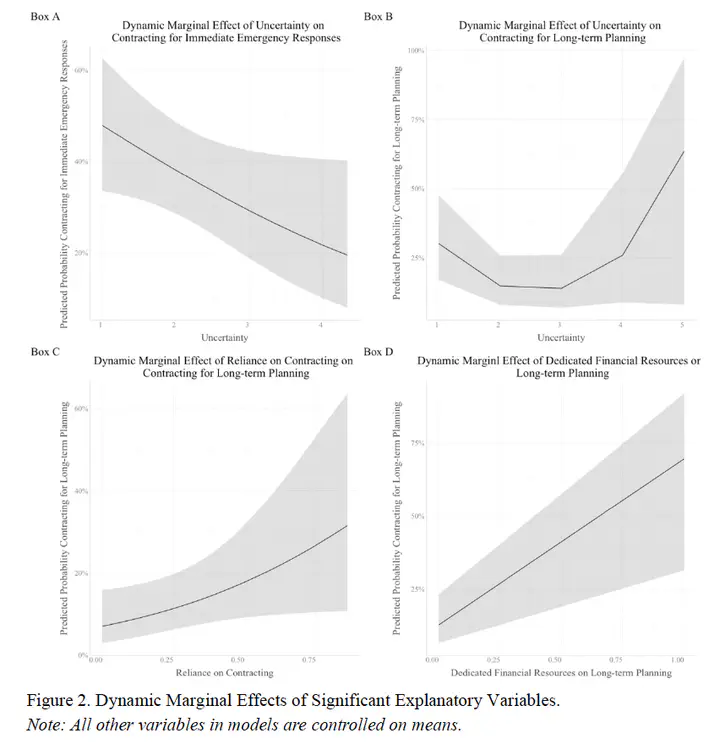Contracting Responses to Extreme Weather Events in Public Organizations

Abstract
Public organizations facing emergencies often coordinate with other local public and non-profit organizations for assistance and response. Yet we know little about the contractual relationships public organizations build with external organizations for emergency responses. Drawing from organizational theories, we explore three organizational factors behind public organization decisions to contract for responses to extreme weather events. Results from agency-level analysis using merged data from three national data sources show that higher levels of managerial uncertainty about extreme weather events are associated with lower contracting for immediate emergency responses, and very high levels of uncertainty are positively associated with contracting for long-term emergency planning. Additionally, greater reliance on contracting for daily services and receipt of dedicated financial resources for extreme weather events are associated with increased contracting for long-term planning. We connect our findings with the contracting and emergency management literatures and discuss limitations and practical implications.